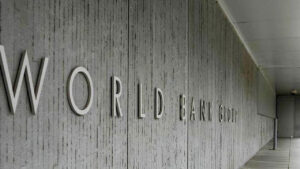World Bank approves $500-M loan for PHL climate-resilient schools
THE World Bank said on Wednesday that it agreed to lend the Philippines $500 million to finance the construction of climate-resilient schools. According to a loan document uploaded on the World Bank website, the bank approved the terms of the Infrastructure for Safer and Resilient Schools Project on Nov. 18. The project will address the […]

THE World Bank said on Wednesday that it agreed to lend the Philippines $500 million to finance the construction of climate-resilient schools.
According to a loan document uploaded on the World Bank website, the bank approved the terms of the Infrastructure for Safer and Resilient Schools Project on Nov. 18.
The project will address the physical rehabilitation needs and boost the resilience of disaster-affected schools in the Philippines.
It seeks to support a resilient recovery of disaster-affected schools in over 3,000 schools mainly in Caraga, Cordillera Administrative Region, and Regions III, V, VI, VII, VIII, and XI.
This will be implemented by the Department of Education (DepEd) and the Department of Public Works and Highways.
The Philippines remained the most disaster-prone country for a 16th year, according to the World Risk Index. It experiences about 20 tropical cyclones each year.
In Bicol, the DepEd reported that 408 schools were damaged, and 244 classrooms were destroyed by Super Typhoon Pepito (international name: Man-yi).
As per the loan document, the project will include repair, rehabilitation, and pilot reconstruction of selected school facilities, including the upgrade of school infrastructure operation and maintenance manuals and tools and classroom furniture for reconstructed school buildings.
The project includes the preparation of a Contingent Emergency Response Component (CERC) manual.
The CERC manual may be updated from time to time with the agreement of the Bank, and forms an integral part of the Project Operations Manual.
The document outlines the duration of the project financing, which ends in 2029, with the government principal repayments to commence in 2035, ending on 2052.
The loan agreement was signed by Finance Secretary Ralph G. Recto on Nov. 18, while Country Director for the Philippines, Malaysia, and Brunei Zafer Mustafaoğlu signed on behalf of the World Bank the day prior.
The payment dates are March 15 and Sept. 15 each year, it said.
Other climate response-related projects such as the Pagkilos – Locally-Led Climate Action and the Philippines First Energy Transition and Climate Resilience, are set to be approved next year, according to the World Bank’s website. — Aubrey Rose A. Inosante
















